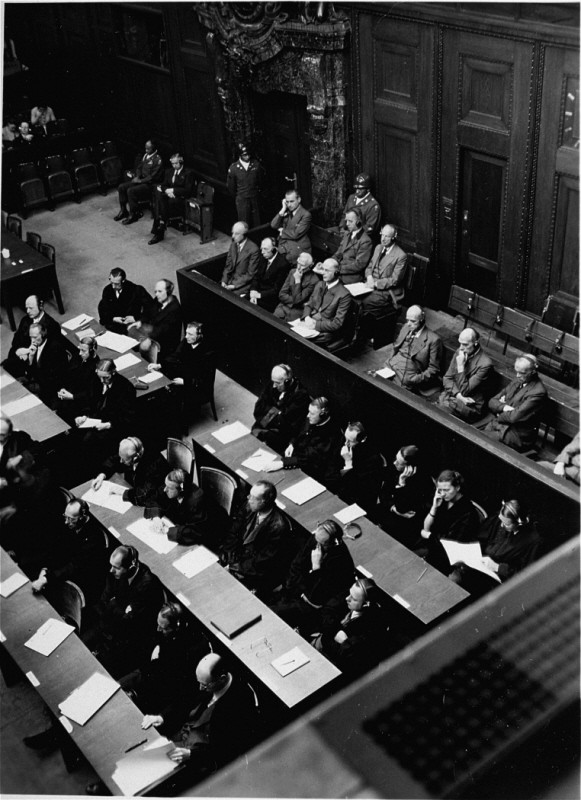
Subsequent Nuremberg Proceedings, Case #12: The High Command Case
After World War II ended, the Allies established courts in each of their occupied zones in Germany to prosecute German officials for their role in the commission of war crimes, crimes against peace, and crimes against humanity. American military tribunals in Nuremberg, Germany, presided over 12 major proceedings against leading German industrialists, military figures, SS perpetrators, and others. Included among these Subsequent Nuremberg Trials was the High Command Case.
United States v. Wilhelm von Leeb, et al.
On December 23, 1947, the US Military Government for Germany created Military Tribunal V-A to try the High Command Case. This was Case #12 of the Subsequent Nuremberg Proceedings.
The 14 defendants, formerly all leading command or staff officers in the German armed forces, had been indicted on November 28 in a four-count indictment. They were charged with:
- committing crimes against peace by participating in the initiation of invasions of other countries and wars of aggression in violation of international treaties
- war crimes and crimes against humanity by participating in atrocities and offenses, including murder, ill-treatment, denial of status and rights, refusal to quarter, and employment under inhuman conditions, against prisoners of war (POWs) and members of armed forces at war with Germany
- war crimes and crimes against humanity by participating in atrocities and offenses, including murder, extermination, torture, use for forced labor, deportation to slave labor, persecution on religious, political, and racial grounds, and destruction of cities, towns, and villages, against German nationals and civilians of territories under German occupation
- participation in a common plan or conspiracy to commit crimes against peace
After the arraignment on 30 December, the trial ran from February 5, 1948, until August 13, finishing with only 13 defendants, after Johannes Blaskowitz committed suicide on the first day of the trial. The judgment was delivered on October 27 and 28, with the tribunal finding all the defendants not guilty of crimes against peace (counts one and four), but only two not guilty on counts two and three. The sentences were announced on October 28, with two defendants sent to prison for life, and the other nine guilty defendants receiving prison terms ranging from 3 to 20 years.
Critical Thinking Questions
- Beyond the verdicts, what impact can trials have?
- Besides military participants, what other professionals were charged with crimes following the Holocaust?
- How have some professional codes of conduct changed following the Holocaust?
- How did national histories, agendas, and priorities affect the effort to try war criminals after the war?
- Is it ever too late for accountability?

